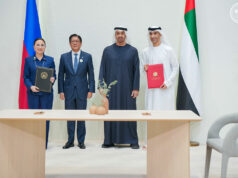In the last episode of the Game of Thrones’ penultimate season, Cersei demands that Jon Snow remains neutral between the queens, but Jon affirms he has already sworn himself to Daenerys. This led to initial collapse of the talks. Jon was asked why he could not lie to achieve the negotiation’s objective. And Jon Snow responds about the importance of honesty and integrity.
Of course this is fiction, but how many will go to extra lengths — meaning to lie — to achieve a personal goal, especially in the workplace? “The ends justify the means” appears to have been accepted as a norm. Even in present day Philippine politics, the concept of honesty as a prerequisite for the country’s leaders has hogged the headlines. This piece will dare not dwell on that issue but will share a personal realization. After all is said and done, one’s reputation of integrity is a treasure worth keeping.
After 40 years in the workplace, I can relate to an article written by Amy Rees Anderson for Forbes. “Success will come and go, but integrity is forever. Integrity means doing the right thing at all times in all circumstances, whether or not anyone is watching. It takes having the courage to do the right thing, no matter what the consequences will be. Building a reputation of integrity takes years, but it only takes a second to lose,” she says in the article.
In the same article, she quotes Warren Buffet of Berkshire Hathaway: “In looking for people to hire, look for three qualities: integrity, intelligence and energy. If they don’t have the first one, the other two will kill you.” A person’s dishonesty will eventually catch up to them. Dishonest actions will eventually be uncovered. The risk of getting ahead for a short period of time is incomparable to its lasting consequences.
Times might have changed and honesty is an unpopular route today, yet one fact still remains — one’s reputation for honesty affects life’s success whether one is aware of it or not. In business, there is a term called “integrity edge” pertaining to trust generated over time by companies resulting to good business relationship or client loyalty. As individuals, living honestly means self-respect, peace of mind, family happiness, and a good relationship with God.
Allow me to share a few personal experiences. As former head of one agency involved in small business development, we were approached several times with proposals to be conduits for the Priority Development Assistance Funds. The proposals were, on the surface, noble, but the idea of passing through political hands hinted of possible compromise in beneficiary selection. We wanted to enlarge the small fund we had to support small businesses, but we were worried our process would be subject to trade-offs. A few years later, the rightfulness of our decision was validated by the scandals that transpired.
In another professional situation, I was at one time asked to head the procurement of an important but expensive process. It was a systems project beyond my established competence and for this very reason, I declined. Honesty also means accepting one’s limitations even if the potential glory of leading a successful innovation in the organization was tempting.
Standing up for integrity and maintaining it means determining your priorities and upholding it in all your dealings. You have to contemplate or anticipate situations that will challenge your honesty. You need to plan on how to respond properly and make your position known at the beginning of any business or work relationship. It takes a lot of courage and tactfulness letting others know your standards.
Former US President Dwight Eisenhower said, “The supreme quality for leadership is unquestionable integrity. Without it, no real success is possible, no matter whether it is on a section gang, a football field, in an army, or in an office”. The Bible reminds in Hebrews 13:18: “We wish to conduct ourselves honestly in all things.” The integrity that we build for ourselves will last forever. It will make us proud of who we are. The choice is in our hands.
The views expressed herein are his own and do not necessarily reflect the opinion of his office as well as FINEX.
Benel D. Lagua is Executive Vice-President at the Development Bank of the Philippines. He is an active FINEX member and a long time advocate of risk-based lending for SMEs.



